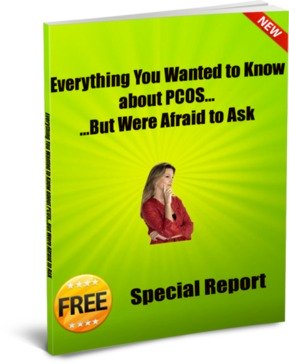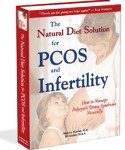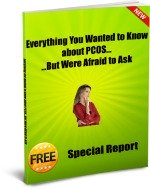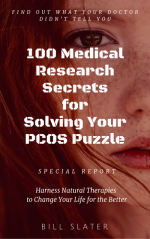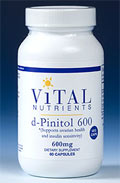PCOS Review Newsletter #148
2) What Happens to Your Brain When You Meditate?
3) Probiotics Helpful for Mood Disorders, and Acne
2) What Happens to Your Brain When You Meditate?
Before we answer that question, let's say a word about stress.
It's not a surprise to you and me that you may be more stressed out than other people. It's incredibly stressful to feel like you're some kind of freak, your body is out of control, or that you can't have a baby.
It's also no secret that you are more likely to be depressed, feel anxious and have low self-esteem.
But it may surprise you that there appears to be a link between stress, your brain, and problems such as depression and low self-esteem.
It's important to note that women with PCOS are inclined to produce more stress hormones (like cortisol) than other women do in a given situation.
Over-production of stress hormones like cortisol is not good. For example, too much cortisol increases abdominal fat.
And, according to the Montreal Neurological Institute, it is associated with shrinkage of a section of the brain called the hippocampus. Shrinkage of the hippocampus has been associated with Alzheimer's as well as reduced self-esteem and feelings of self-control.
Unresolved chronic stress can't be ignored, simply because it worsens the psychological and physical aspects of PCOS.
The Natural Diet Solution e-book has a ton of ideas for reducing stress (see chapter 14.2).
One of those stress-reduction ideas is meditation. Have you tried it?
According to research at UCLA, meditation creates stronger connections between regions of the brain. It also appears to slow down shrinkage of the brain as people get older.
It could be that meditation reduces stress and thus protects your brain.
Find a meditation book or program that appeals to you and give it a try!
Or, try some self-hypnosis. We can recommend Dr. Gilchrest's Stress and Anxiety Management program
Source:
Elgh E et al Cognitive dysfunction, hippocampal atrophy and glucocorticoid feedback in Alzheimer's disease, Biol Psychiatry. 2006 Jan 15;59(2):155-61
Pruessner JC et al Self-esteem, locus of control, hippocampal volume, and cortisol regulation in young and old adulthood, Neuroimage. 2005 Dec;28(4):815-26
Lee AL et al Stress and depression: possible links to neuron death in the hippocampus, Bipolar Disord. 2002 Apr;4(2):117-28
Luders E, et al, Enhanced Brain Connectivity in Long-term Meditation Practitioners, NeuroImage, 57:4, 15 August 2011, 1308-1316
3) Probiotics Helpful for Mood Disorders, and Acne
We reported in a recent issue of our newsletter that women with PCOS have more anxiety and more depression than other women do. And, you well know that they also have a problem with acne.
Is there a solution no one has thought of?
Some very exciting new research is showing that, in lab animals at least, a healthy population of bacteria in the GI tract reduces anxiety, depression, and skin problems such as acne.
This research has revealed a close communication connection between the brain and the gut.
It appears that taking "probiotics" helps to populate the gastrointestinal tract with beneficial organisms, which in turn have an effect on the gut-brain connection.
There are many types of probiotics, commonly available as nutritional supplements. Two common ones are lactobacillus acidophilus and bifido bacteria.
Probiotics have no side effects and are highly beneficial.
If you have a history of antibiotic use, taking probiotics is especially important because antibiotics kill beneficial micro-organisms in your gut.
Source:
Bowe, W et al, Acne vulgaris, probiotics and the gut-brain-skin axis - back to the future?, Gut Pathog. 2011; 3: 1.
Bravo, JA et al, Ingestion of Lactobacillus strain regulates emotional behavior and central GABA receptor expression in a mouse via the vagus nerve, Proc Natl Acad Sci USA, 2011 Aug 29; [Epub ahead of print].
"Do everything quietly and in a calm spirit. Do not lose your inner peace for anything whatsoever, even if your whole world seems upset." -- t. Francis de Sales
PCOS Health Review
This free newsletter gives you original and immediately usable information to help you deal with PCOS.
Get the latest research, tips for improving your health, answers to questions, success stories, and more!
Your e-mail address is totally secure. We will never misuse your information.
Enter Your Email Above to Subscribe Today
and Get Your Questions Answered in this Free Special Report!
